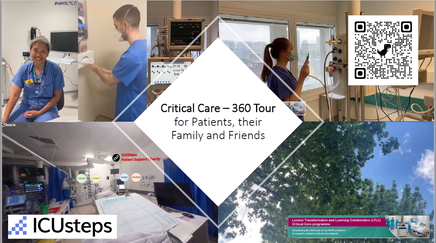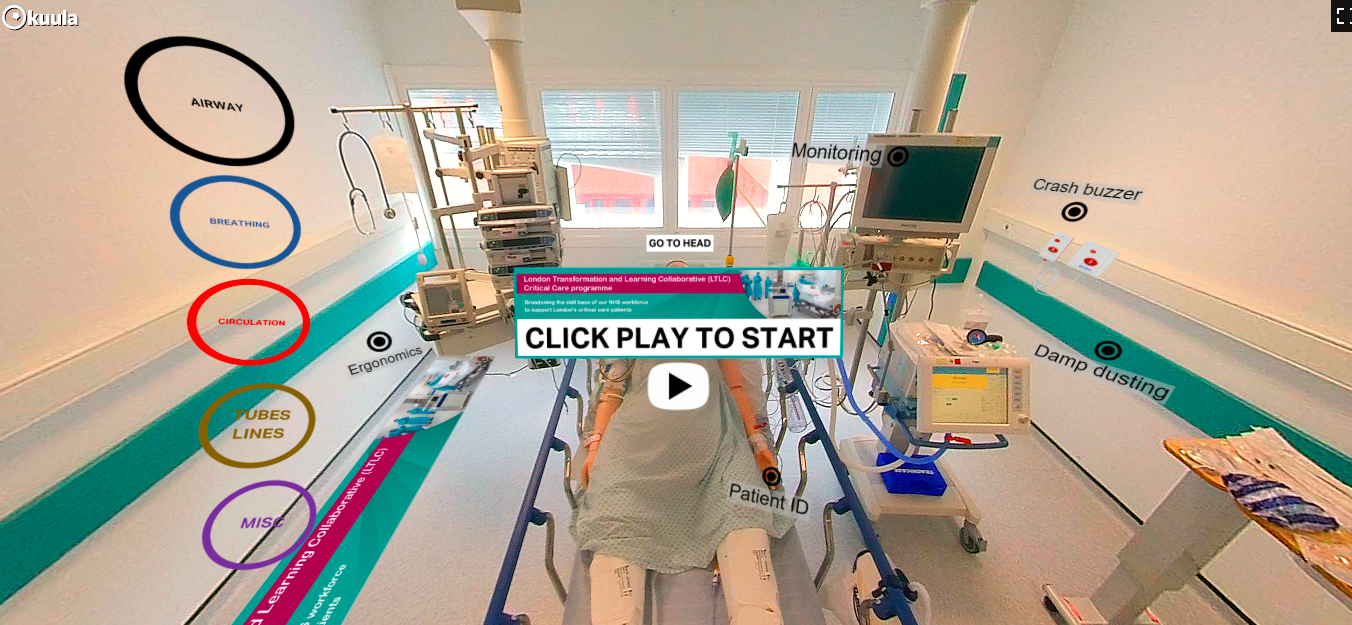Critical Care is a term now used for an area in the hospital, which provides two levels of care for patients, although in some hospitals this may be in two separate areas. These patients will be the sickest patients in the hospital from a severe illness or injury. The aim is to achieve the best possible recovery, although this is not always possible and because they are so ill, some patients will die in Critical Care. When recovery becomes impossible the focus of care changes to making the patient as comfortable as possible.
The information below is aimed at patients and relatives who are going through the critical care journey.
The information below is aimed at patients and relatives who are going through the critical care journey.
What to expect
A Critical Care Unit is also sometimes known as a Intensive Care Unit or an Intensive Therapy Unit. Some hospitals also have High Dependency Units (HDUs), also called step-down, progressive and intermediate care units. HDUs are wards for people who need more intensive observation, treatment and nursing care than is possible in a general ward but slightly less than that given in intensive care.
There are several reasons why a person may be admitted to the Critical Care Unit or High Dependency Unit - e.g. following surgery, or after an accident or severe illness.
The Critical Care Unit is able to provide specialist monitoring, a high level of medical expertise and constant access to highly-trained nurses. In High Dependency Units the ratio of nurses to patients may be slightly lower than in intensive care but higher than in most general wards.
Being in a Critical Care Unit can be a frightening experience both for the patient and friends and family. All healthcare professionals who work in ICU understand this and aim to help and support both patients and families during their time with us.
Patients will be discharged to an appropriate ward for continuing care when they no longer require intensive or high-dependency care.
There are several reasons why a person may be admitted to the Critical Care Unit or High Dependency Unit - e.g. following surgery, or after an accident or severe illness.
The Critical Care Unit is able to provide specialist monitoring, a high level of medical expertise and constant access to highly-trained nurses. In High Dependency Units the ratio of nurses to patients may be slightly lower than in intensive care but higher than in most general wards.
Being in a Critical Care Unit can be a frightening experience both for the patient and friends and family. All healthcare professionals who work in ICU understand this and aim to help and support both patients and families during their time with us.
Patients will be discharged to an appropriate ward for continuing care when they no longer require intensive or high-dependency care.
Useful Links
Below are links to organisations who provide information about critical illness and the ongoing impacts it may have.
Scan the QR code on your mobile phone and it will take you on a virtual tour of critical care .....
If you dont have a QR scanner you can download it free from your app store.
If you dont have a QR scanner you can download it free from your app store.
Four videos have been prepared by the Faculty of Intensive Care Medicine to help patients with nutritional support after critical care.
|
|
|
|
|
|
Patient Experiences
|
This is a short video of ex critical care patients sharing their experiences of their time spent on critical care.
|




